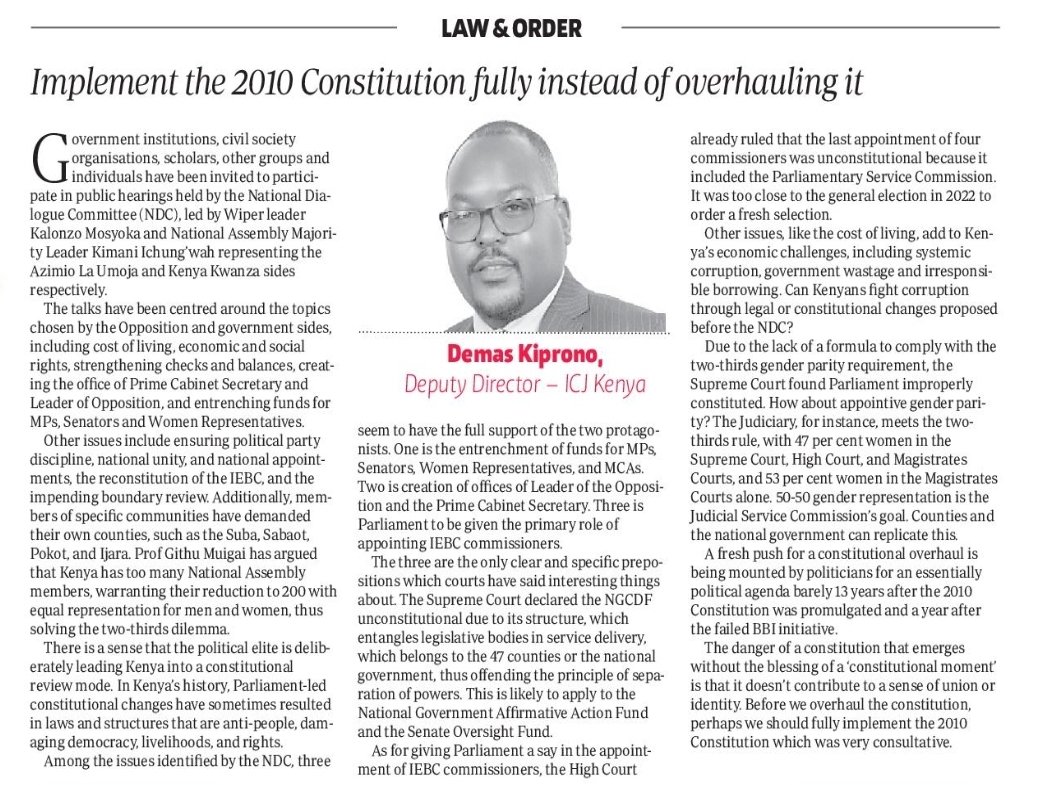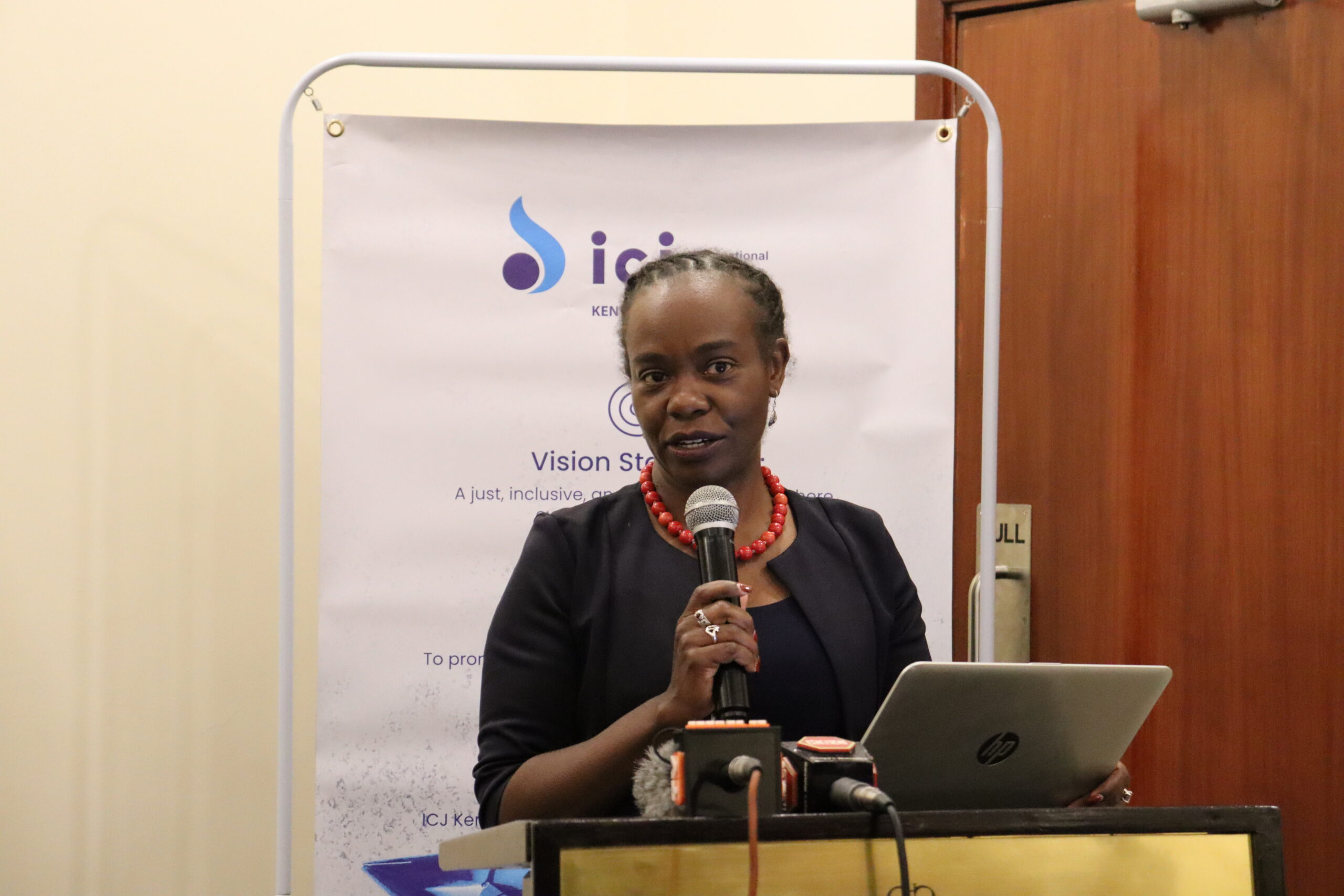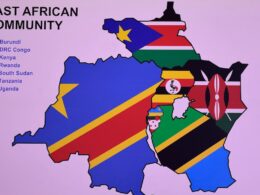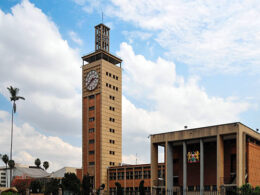Government institutions, civil society organisations, scholars, other groups and individuals have been invited to participate in public hearings held by the National Dialogue Committee (NDC), led by Wiper leader Kalonzo Mosyoka and National Assembly Majority Leader Kimani Ichung’wah representing the Azimio La Umoja and Kenya Kwanza sides respectively.
The talks have been centred around the topics chosen by the Opposition and government sides, including cost of living, economic and social rights, strengthening checks and balances, creating the office of Prime Cabinet Secretary and Leader of Opposition, and entrenching funds for MPs, Senators and Women Representatives.
Other issues include ensuring political party discipline, national unity, and national appointments, the reconstitution of the IEBC, and the impending boundary review. Additionally, members of specific communities have demanded their own counties, such as the Suba, Sabaot, Pokot, and Ijara. Prof Githu Muigai has argued that Kenya has too many National Assembly members, warranting their reduction to 200 with equal representation for men and women, thus solving the two-thirds dilemma.
There is a sense that the political elite is deliberately leading Kenya into a constitutional review mode. In Kenya’s history, Parliament-led constitutional changes have sometimes resulted in laws and structures that are anti-people, damaging democracy, livelihoods, and rights.
Among the issues identified by the NDC, three seem to have the full support of the two protagonists. One is the entrenchment of funds for MPs, Senators, Women Representatives, and MCAs. Two is creation of offices of Leader of the Opposition and the Prime Cabinet Secretary. Three is Parliament to be given the primary role of appointing IEBC commissioners.
The three are the only clear and specific prepositions which courts have said interesting things about. The Supreme Court declared the NGCDF unconstitutional due to its structure, which entangles legislative bodies in service delivery, which belongs to the 47 counties or the national government, thus offending the principle of separation of powers. This is likely to apply to the National Government Affirmative Action Fund and the Senate Oversight Fund.











